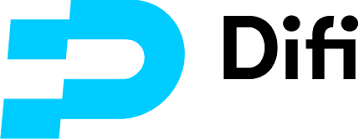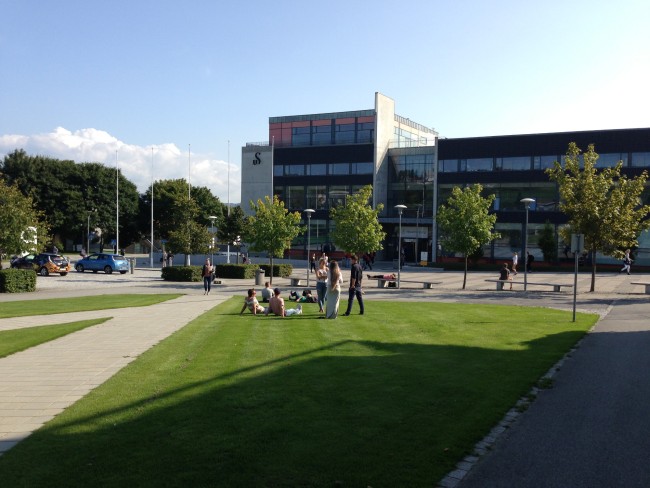One of the university’s strategic objectives is to be an open, user-oriented and learning organisation known for its good work and learning environment and a culture of cooperation characterised by innovation, engagement and mutual respect. We are aiming for further development of the quality within our organisation by means of good skills development schemes.

The university offers its employees various skills development measures.
Besides internal courses on offer, employees have the opportunity to undergo individual skills development in the form of courses and further education. A schedule for this is established in the annual appraisals with line managers, which are the most important tool in systematic skills development. Skills development is part of the work schedule for academic staff in that R&D time is allocated. There is an educational-pedagogical merit scheme for academic staff. Work is also in progress on developing a holistic career plan for academic staff.
Management development
The University of Stavanger offers support to managers by means of a management forum, manager training and management development.

The management forum is the rector’s meeting of managers. This meeting provides an arena for discussion and knowledge exchange across the organisation in respect of strategic objectives. The management forum also provides an arena for creation of collective understanding of strategic institution-wide objectives, and also in order to assist with problem resolution, discussion and awareness throughout the institution. The management forum provides an opportunity to endorse decisions and acts as a listening post for the rector and the strategic department management. The management forum is normally held two or three times per semester.
Women to the top
Supervision for promotion to professor.

15 to 20 women in associate professor positions are being offered the opportunity to participate in a promotion programme providing mentoring in the skills development process until they are promoted to professor. The aim of this is to increase the percentage of women holding professorships. Participants in the programme undergo a trial evaluation similar to an actual evaluation for a professorship. The aim of the programme is to register what candidates may be lacking in order to achieve professorial skills, and to provide motivation and support in the process until candidates achieve promotion to professor.
The Career Development Program
- For early-stage researchers

The Career Development Program is a collaboration between the Research Department, HR and researchers. The Research Department admits applications to the program in March. The program is for researchers who plan to apply for external funds in a few years. In order to qualify as an early-stage researcher you must hold a position at UiS and in the first 7 years of your approved doctorate. The program offers skills development in career planning, internationalisation, communication and project development. The program is in english. Please contact Birgitte Dambo for any questions.
The Supervisory Qualification Programme
- For scientific staff who is supervising og planning to supervise PhD candidate.

This popular supervisory programme consists of three two-day learning modules at Sola Strand hotel. Admissions in November. The programme is a collaboration between the Research Department and experienced supervisors. Your leader at Department is responsible for signing you up. Please contact your leader, or Marit Fosse or from the Research Department for any questions.
Merit scheme
Academic staff can apply for qualified teacher status. Qualified teacher status is advertised annually, and the deadline for applications is 1 November.

Anyone who achieves qualified teacher status is accepted to the University Board in the March of the following year. Qualified teachers receive an annual pay increase of NOK 50,000 gross.
This scheme includes the categories of professor and associate professor. The criteria for qualification are the same for all positions, but they are assessed in the light of the educational context and position category. You must document progression and scope of activities linked with teaching and supervision.
NyTi
NyTi is a one-year compulsory academic supervision programme for all new employees who will be teaching. To participate in this programme, you have to be employed in at least a 50 per cent position for at least 12 months.

NyTi does not just involve teaching-related supervision, but is also an integration programme for new employees in order to familiarise them quickly with the institution and practice at the University of Stavanger as regards issues related to teaching and everything on which teaching is based. NyTi provides the opportunity to get to know other academic staff and develop academic networks.
There are two NyTi admission procedures a year, with deadlines on 1 September and 1 February. Commencing September/October and February/March.
The UniPed group, which is responsible for implementation of the programme, appoints a supervisor for new employees. This supervisor must be employed in an academic position at the university and have completed studies in professional supervision.
Basic course - educational-pedagogical competence
The university places emphasis on good teaching quality and requires employees in permanent teaching and research positions to be able to document pedagogical and didactic skills linked with higher education.

If you fail to meet the skills requirement, you must complete a course in university pedagogy within two years of appointment. This course is offered by the university
and is a 150-hour course. Relevant topics on the course to date have included planning, implementation and assessment of courses and teaching, student-active learning methods and how to prepare lectures, assessments and examinations. Colleague learning and the use of colleagues as “critical friends” is another important area.
Mentor programme
…for women in recruitment positions in technical-natural science disciplines.

Women in postdoctoral and PhD positions are offered the opportunity to participate in a special mental programme encouraging a career in research at the University of Stavanger. The aim of this is to increase the percentage of women in academic positions in technical-natural science disciplines. Anyone participating in the programme will be mentored by a professor at the university.
Following lectures at the university
Employees can follow lectures at the university for up to four hours a week.

It is assumed that the disciplines will be relevant to your duties at the university, and a written agreement with your line manager must be entered into beforehand. Any such agreement assumes that your participation in lectures does not significantly affect technical operations at the unit. You are entitled to reading days and time off on examination day, and your semester fee charges will be refunded when you pass the examination.
Internal courses
A number of units at the university offer courses for staff.

A number of these are listed here:
- The IT department regularly offers various courses for staff on the use of various tools.
- The university library offers courses on academic writing, searching for reference literature and the use of various digital tools when writing, among other things.
- The Department of Research Policy and Coordination offers courses on research supervision and writing applications.
- The HR department offers meetings on ergonomics and various management development courses, among other things
ECIU
The University of Stavanger is a proud member of the European Consortium of Innovative Universities (ECIU), a network of innovative European universities.

ECIU universities are working together across national borders in order to develop teaching methods and educational quality to the highest level. This involves greater focus on challenge-based learning, research and innovation, as well as exchange opportunities for students and employees.
The network’s flagship is ECIU University, which is part of the EU’s prestigious focus on European Universities. The initiative received four more years of funding by the EU in 2022.
International mobility thanks to Erasmus +
Erasmus+ allows us to offer employees various skills development support schemes:

- The main objective with Erasmus+ employee mobility is to support skills development for employees at higher education institutions and reinforce individual employees’ capacity to work at international knowledge-based companies. Employees at the University of Stavanger can apply for backing from Erasmus+. Grants can be used for attending courses as a guest student, courses and training activities at either a partner institution or another organisation/company abroad.
- The main objective with ERASMUS+ teaching stays is to help with internationalisation of the education offering in Europe, enhance language skills and cultural awareness and understanding and forge closer ties between education and working life. Academic staff at the University of Stavanger can apply for backing from Erasmus+. Grants can be used for teaching assignments abroad at one of the university’s partner universities, or to invite guest lecturers from companies/organisations abroad to the University of Stavanger for teaching purposes. The purpose of this is to reinforce the links between education and working life.
- The Erasmus programme’s ground can also be used to cover travel and subsistence expenses in connection with language courses, regardless of whether this involves improving the general level of language or attending specialised courses.
The European Association for International Education (EAIE) offers workshops for higher education employees who need skills in respect of internationalisation, strategy and management, networking, languages, supervision of international students, etc. These are arranged as independent courses or at EAIE Academy, a weekly offering involving intensive course activities.
The ECIU network and the ECIU Staff Mobility Programme give employees the opportunity to acquire skills and experience by means of exchange schemes with other universities in the network.
Employees can also travel on exchange trips to Nordic countries via the NORDPLUS programme’s mobility schemes.
Difi-course

The Norwegian Digitalisation Agency (Difi) offers a range of e-learning courses and other learning initiatives in which employees may participate.
Les mer om å jobbe ved UiS:
Charter and Code – HRS4R
UiS signed in 2011 for the Declaration of commitment to the Recommendation of the European Commission on the European Ch...
Vacant positions at UiS
There are a number of exciting vacant positions at the University of Stavanger. Click the blue arrow to read more about ...
The University of Stavanger as a place to work
Our societal mission is higher education, research and artistic development work, dissemination and innovation. We have ...
Erasmus+ programme
The UiS is holder of the Erasmus Charter for Higher Education and participates in all dimensions of the Erasmus+ program...
International relations
The University of Stavanger welcomes a growing number of international students and staff to our region each year, and h...
Working at UiS: Application and Appointment
On this page you can find an overview over the appointment process and national regulations regarding appointment and pr...






